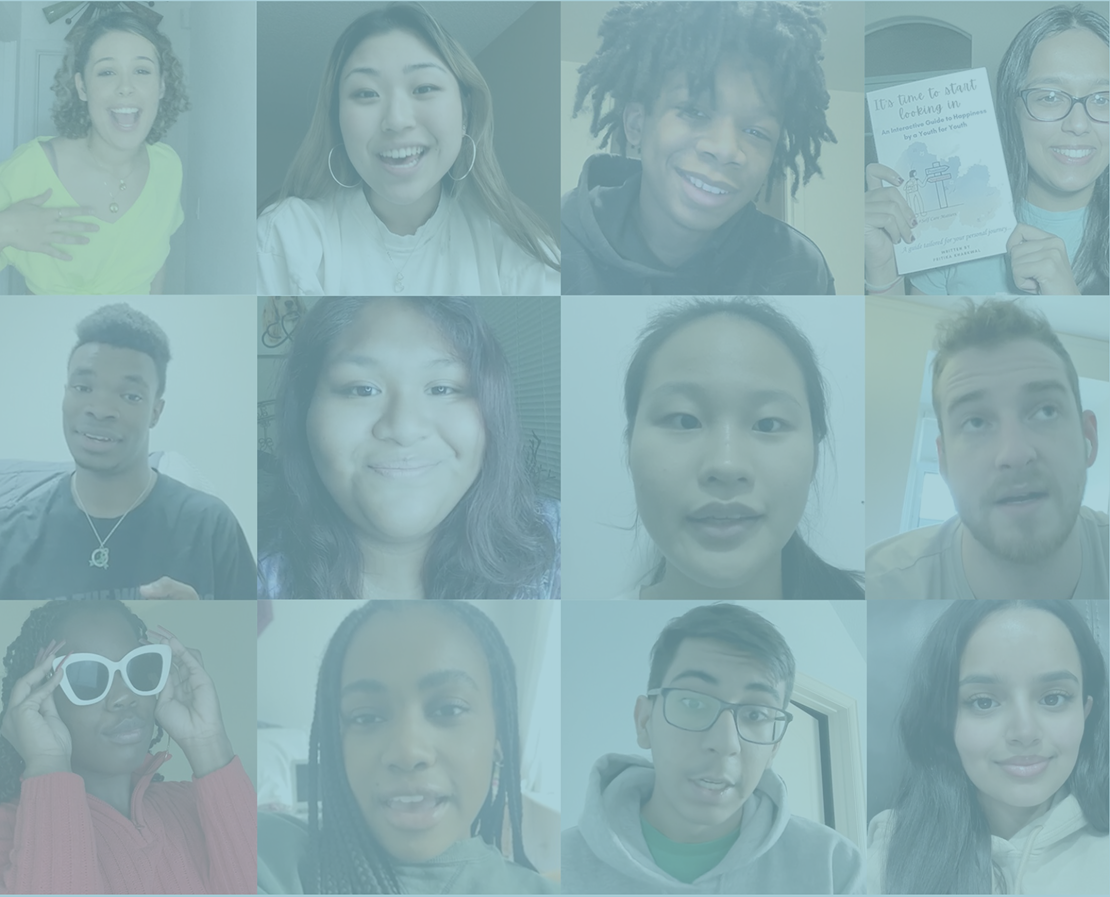



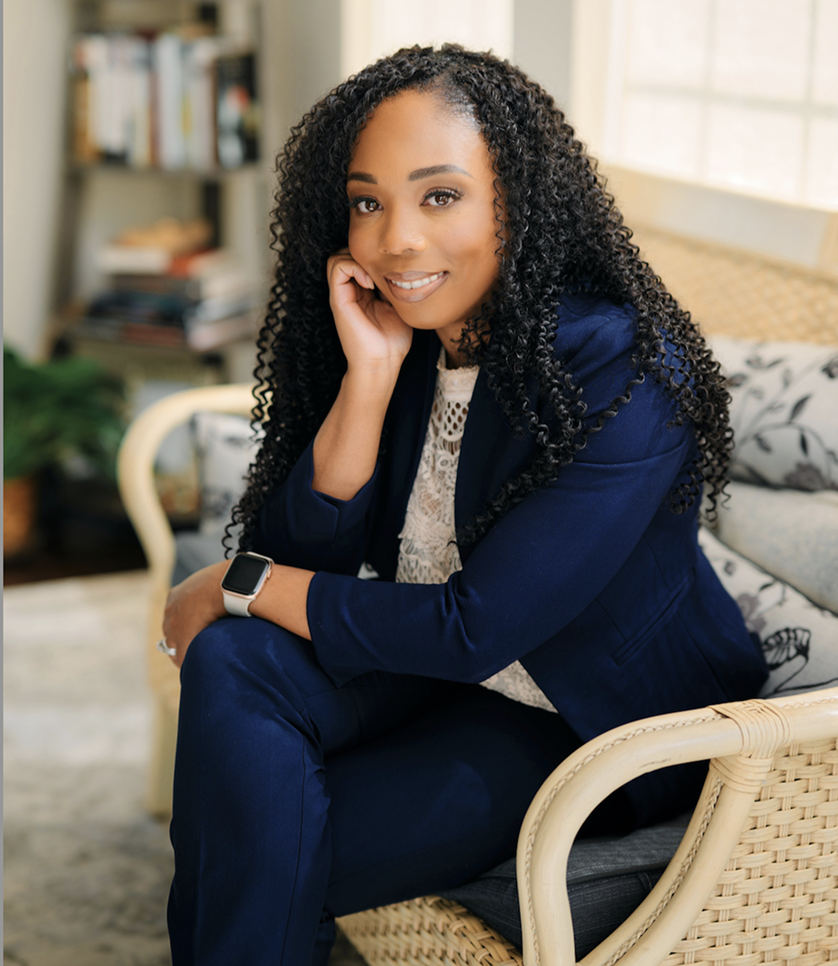
Dear PHE Friends,
Thanks to you, Peer Health Exchange (PHE) has been providing health education and access to critical mental and health services nationwide since 2003. Your support has been instrumental in meeting young people’s needs wherever they are, and they need PHE now, more than ever. This year, recent events at the national level have significantly impacted PHE programs and, the defunding of public school education and repression of DEI initiatives, sexual and reproductive health support, and other work quickly changed where and how PHE can reach young people. Combined with funding challenges, PHE pivoted its programming in response.
In FY 2025, PHE made the difficult decision to discontinue our Fellow-led, school-based health education workshops. While this decision was not made lightly, the very real risks to PHE’s ability to deliver our inclusive and affirming health education curricula in public schools combined with a challenging fundraising environment for nonprofits guided our decision to make the following strategic changes while remaining steadfast in our mission:
Additionally, PHE has continued to invest in our health web-app selfsea to meet the health needs of young people wherever they are. PHE will continue to elevate youth voice and leadership in our programming to ensure that our organization is youth-led, and our commitment to serving youth and delivering our proven programming remains steadfast. While our delivery methods might be shifting, we plan to achieve maximum impact in ways that are effective and sustainable.In a continuation of our 2022-2024 Strategic Plan, PHE’s 2025-2026 Strategic Plan expands upon our core goals: To reach more young people through in-person and digital health education solutions; and to elevate youth voice and leadership in all we do to advance health equity. This will include continuing the expansion and impact of our web-app selfsea, reaching young people in-person via our Peer-to-Peer model in partnership with community-based organizations, health providers, and schools, and by centering youth voice in our work through our Youth Advisory Board.
The future of our youth remains PHE’s priority. I am truly humbled and grateful for the role our community has played in rebuilding the future of youth health together.
In partnership,
Angela Glymph
CEO, Peer Health Exchange
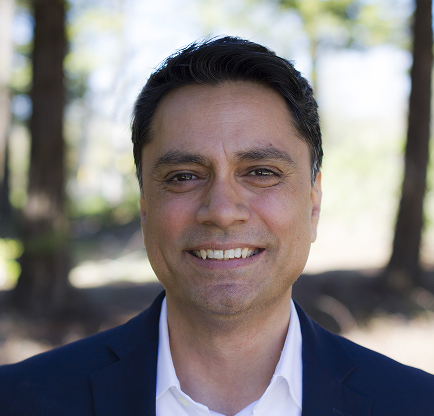
“Our mission is urgent and our cause is worth every ounce of our effort. The work we do in advancing youth health equity, supporting mental well-being, and expanding access to education, matters more than ever.”
Bhupendra Sheoran, PHE Board Chair
Cell-Ed

At Peer Health Exchange, our mission is to build healthier communities with young people. Young people ages 13-18 advise us on how to get reliable, factual, and important health information out to youth.
Our Youth Advisors build leadership and professional development skills and join a national network of young people passionate about transforming their communities by creating meaningful social change!
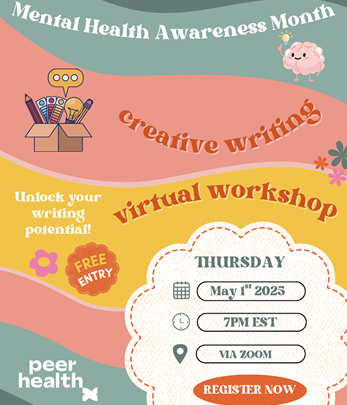
Participants engaged in collaborative creativity, guided self-reflection, and expressive writing practices that promote mental health awareness, self-compassion, and community connection.
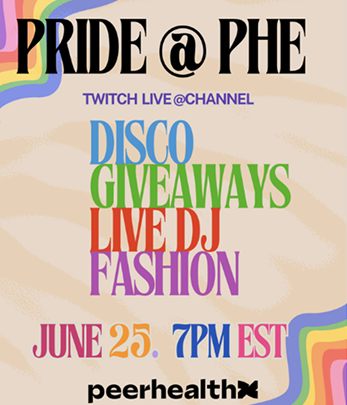
We celebrated Pride at PHE by creating a safe space for LGBTQ+ youth to express their joy, creativity, and identities through music, fashion, and more. Participants had a chance to win giveaways and hear about health and support resources for LGBTQ youth. The event garnered 275 unique viewers/attendees on TikTok, a social media platform.
Peer Health Exchange met our goal of engaging 70 young people nationally through our Youth Advisory Board. These youth served as co-creators and collaborators, shaping digital content, community campaigns, and health equity projects.
of participants definitely feel like PHE creates inclusive and accessible environments for them to participate in
of participants definitely feel like the spaces at PHE are welcoming, supportive, and safe spaces for them to be themselves
of participants definitely feel valued by PHE staff as an important contributor to co-create and co-design their experiences and youth-facing products in PHE
of survey respondents are likely to recommend Peer Health Exchange as a place to work to a friend or peer
Both Peer Health Exchange and selfsea underwent massive rebrands/brand expansions in 2022, with young people’s voices in mind. We continue to honor the input of the young people who helped create these brands, and engage our original audience, while expanding our following.
In FY24, we began discovery for the curation of our Youth Advisory Board (YAB) branding. In FY25 visual research and initial discussions with YAB have been completed along with the signature color and 3D textures, to visually distinguish it from our other pillars of work.
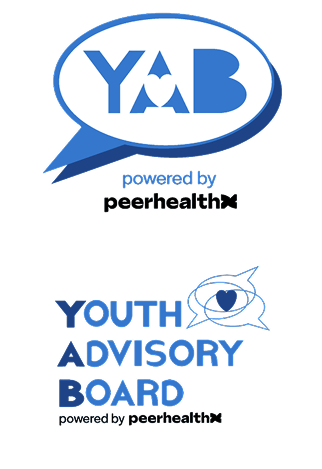
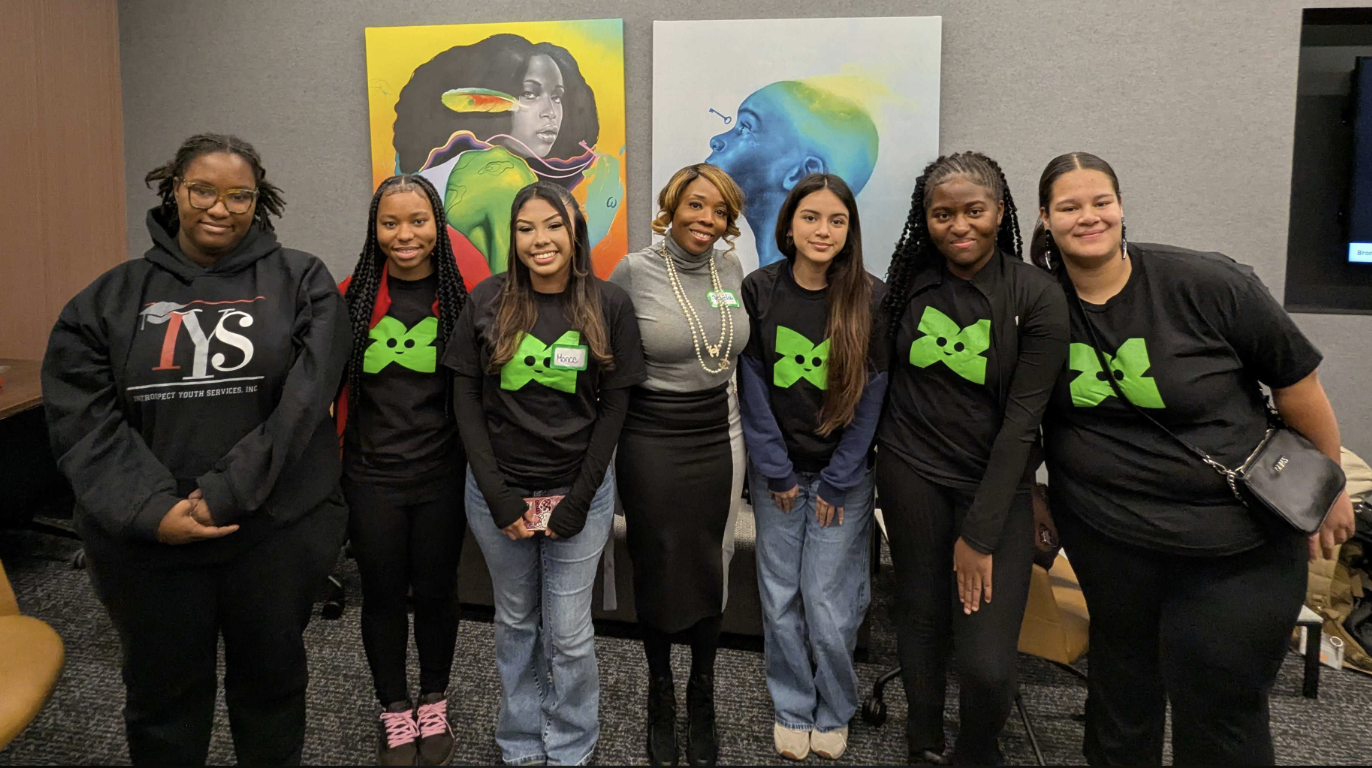

Peer Health Exchange’s peer leadership program, Peer-to-Peer, trains young people under the age of 18 to become Peer Facilitators who deliver Peer Health Exchange health education curriculum to their peers. The curriculum focuses on mental health, sexual health, and substance use.
Through this program, young people gain knowledge and build skills in advocacy, accessing resources, self-reflection, and decision-making—empowering them to support the well-being of their communities.
Ameerah, 16, Peer Facilitator, Chicago

After receiving the PHE curriculum from Peer Facilitators, high school students reported:
After PHE curriculum, 90% demonstrated their understanding of consent by correctly indicating that a person has the right to refuse any sexual act even if they have said yes before.
After receiving PHE, 91% of students reported understanding of avoiding drinking because of risks, and 93% reported an understanding of avoiding vaping because of risks.
After PHE curriculum, 89.5% of students agree or strongly agree that other students their age would benefit from participating in this program with Peer Health Exchange.
Help-seeking in Mental Health: After receiving PHE’s curriculum, 52% of students reported feeling mostly or extremely confident in their ability to seek help when they are worried or sad; 84% reported feeling mostly or extremely confident in their ability to encourage a friend to seek help for mental health.
After the PHE Curriculum, 81% of students reported feeling mostly or extremely confident in their ability to choose whether or not to have sex
After the PHE Curriculum, 66% reported feeling mostly or extremely confident in their ability to talk to a partner about having sex
After the PHE Curriculum, 79.1% reported feeling mostly or extremely confident in their ability to feeling extremely confident in their ability to choose a type of pregnancy and/or STI prevention if they choose to engage in sex

At Peer Health Exchange, our mission is to build healthier communities with young people. Young people ages 13-18 advise us on how to get reliable, factual, and important health information out to youth.
Our Youth Advisors build leadership and professional development skills and join a national network of young people passionate about transforming their communities by creating meaningful social change!
In the Spring of 2025, we introduced a new culturally responsive and age-appropriate selfsea user experience survey. Of the 120 respondents to our selfsea user experience survey, we found:
users across 300+ cities
resources accessed
of survey participants strongly agree or agree that they learned something new that they willuse for their health.
of survey participants strongly agree or agree they will definitely use the resources or information from selfsea to get help for their health.
of survey participants strongly agree or agree that the resources and information available on selfsea are applicable and meaningful to their background and/or community.
of survey participants strongly agree or agree that they feel more positively about their ability to advocate for their health.
of survey participants are likely to recommend selfsea to a friend.

Our partnership with Crisis Text Line represents a vital component of our commitment to fostering a safe and supportive environment for young people. At the top of the selfsea platform, we prominently feature a banner that directs youth in crisis to immediate, professional support through Crisis Text Line. This deliberate integration reflects our mission to ensure that every young person has access to trusted resources during times of need.
The impact of this partnership is significant. Data indicates that 68% of texters disclosed something to a Crisis Counselor that they had never shared with anyone before. Notably, one young person’s experience of suicidal ideation was identified and addressed through their connection to Crisis Text Line, underscoring the life-saving potential of this partnership. Moreover, the majority of young people who reached out did so seeking support for anxiety—highlighting both the urgent and widespread mental health challenges facing today’s young people, and the critical role selfsea plays in helping them take the first step toward care.
These findings highlight both the depth of trust established through the service and the critical importance of providing accessible, confidential avenues of support for youth.

Our partnership with Headspace brings mindfulness and mental wellbeing tools directly to young people through selfsea. Youth ages 13–18 can sign up for a free Headspace account, unlocking unlimited access to guided meditations, breathing exercises, and mindful videos designed to support their mental health. This collaboration complements the resources already available on selfsea and advances our mission to create a safe, supportive, and empowering space for youth. Impact Snapshot (Jan–June 2025):
These numbers highlight not only the demand for accessible mental wellbeing support, but also the trust young people place in selfsea to guide them toward resources that make a real difference in their daily lives.

Peer Health Exchange hosted A Night Out for Health fundraiser event Wednesday, March 5th at The Bowery Hotel in Manhattan. With a panel discussion, speeches, networking, and delicious bites, the event raised awareness and support for youth health education.
Guests listened to speeches by students and advocates about the importance of youth-led education and access to critical resources nationwide. Sherri Shepherd was honored as the Peer Health Exchange 2025 Youth Champion.
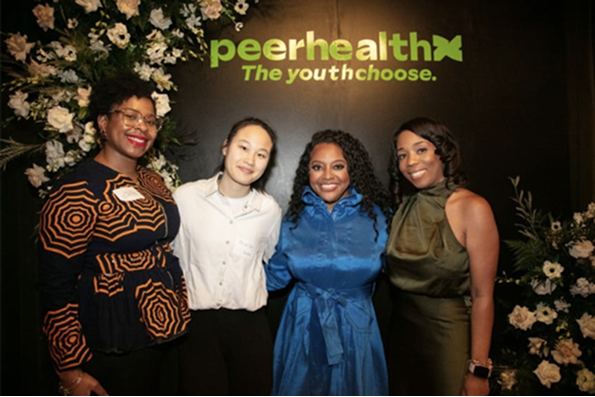
The second A Night Out for Health took place in Boston in early April 2025. A panel of four high schoolers from City on a Hill Boston Charter School shared about building a healthier community in Boston, and the role that Peer Health Exchange plays to achieve that goal.
Attendees also heard from Massachusetts State Senator Sal DiDomenico on the importance of youth health education advocacy in Boston.
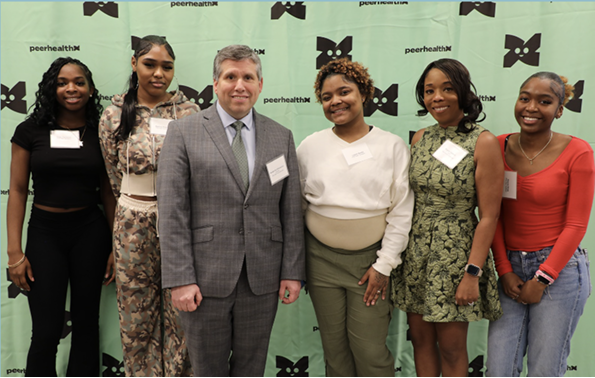


Partnership Spotlight:
Peer Health Exchange joined the Youth Mental Health Corps (YMHC), a multi-sector initiative, launched in 2024, designed to address the youth mental health crisis and workforce shortages in behavioral health, by empowering young adults with a pathway to meaningful careers within the field.
The AmeriCorps initiative, funded in partnership with The Schultz Family Foundation and Pinterest, will give young adults aged18-24 years old the opportunity to provide peer and near-peer mental health navigation while obtaining quality training, skills, experiences, and credentials to start a career in behavioral health. Approximately 250 YMHC members will serve in over 50 schools, community-based organizations, community health clinics, and behavioral health organizations across eleven states, to support service organization staff teams through activities such as small group check-ins with students, trainings for caregivers, and referring youth to mental health resources.

PHE designed and hosted monthly virtual gatherings to foster supportive relationships, address challenges, and celebrate successes, while exploring topics such as near-peer mentoring, skills-based mental health education, behavioral health career pathways, secondary trauma, compassion fatigue, and youth advocacy. In addition, PHE developed and managed a Learning Management System (LMS) to provide YMHC members with synchronous and asynchronous training opportunities and professional development resources.
The YMHC Leadership Fellows Program is a selective leadership opportunity for YMHC members to take on expanded roles. Fellows receive a stipend, collaborate on national projects, engage in professional development, and shape the YMHC member experience—strengthening skills, expanding networks, and making a broader impact.Fellows will:


On behalf of the entire Peer Health Exchange team, we want to express our deepest gratitude for your generous support. Because of you, we are able to continue empowering young people with the knowledge, resources, and support they need to make healthy decisions and thrive.
Together, we are breaking down barriers and ensuring youth feel seen, heard, and supported in moments that matter most.
We are truly grateful for your commitment to this work and for standing with us in building healthier, stronger futures for young people everywhere.
In FY25, we benefitted in numerous ways from the expertise and contributions of valued partners, such as:
A Better Monday | Boston Children's Hospital | Crotty Family Foundation | Dana Farber Cancer Institute | Dedham Savings Bank | Dr.Scholl Foundation | East Bay Community Foundation | Finnegan Family Foundation | Gilead Sciences | Goldhirsh Foundation | Goldman Sachs | Horace W. Goldsmith Foundation | Lisa Stone Pritzker Family Foundation | M&T Charitable Foundation | Mollie Baldwain Foley Charitable Trust | New York Women's Foundation | Pinterest | Pivotal Ventures | Polk Bros Foundation | Procter & Gamble Corporate Giving Fund | Rare Impact Fund | Ray and Tye Noorda Foundation | Robert and Shirley Harris Family Foundation | Salesforce Foundation | Seymour Foundation | The Annie E. Casey Foundation | The Bristol-Myers Squibb Foundation | The Chicago Foundation for Women | The Gray Foundation | The Lawrence Foundation | The Stanley S. Langendorf Foundation | Vistria Group